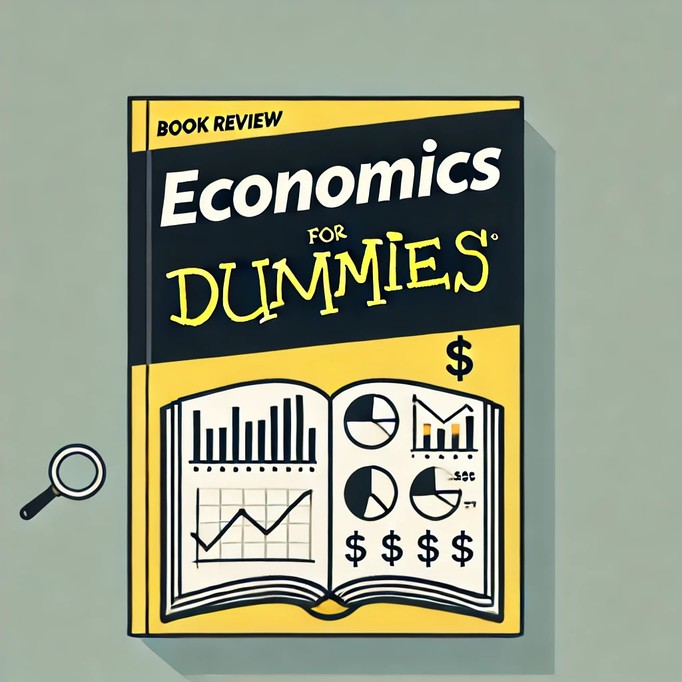Economics for dummies by Sean Masaki Flynn, the book review
Jamshidbek Rasulov

Economics is all bout the allocation of scarce resources in a maximal profitable way; it is all bout the scarcity and squeezing the most out of it. From the historical background of the humanity, the life conditions for people was exceedingly poor until a few centuries ago. Since the invention of new technologies starting from 250 years ago, people started to use the resources like air, water, oil, metals etc. much more efficiently. This rapid economic growth is directly connected with the 18th century Industrial Revolution in England. The book lists several contributing factors for the growth, but I noticed the Patent rights (which gave a right to own an idea for a certain product to an inventor) and Education as ones familiar and understandable. The book then promotes itself by sayin that after reading this book you will be able to understand the world around you a lot better and form opinions for yourself about the economical decisions of your government. Pretty good and shitty at the same time to promote the book in the book itself, right? Next, it again mentions scarcity and the utilization of the scarce products available, adding some terms like diminishing returns (when you put a resource into production, the ready product - output - will be less in scale or amount than the recourse you have put).
Economics is divided into 2 broad group: Microeconomics and Macroeconomics. While Micro one is concentrated on individual things such as the decisions made by a person in a certain situation or a behavior of a firm in a market, the Macro one takes the the scale bigger by looking at the economy as a whole system and studying more general things: inflation, interest rates or unemployment.
Producers determine supply, consumers determine demand. Individuals - consumers - make the economic decisions to get the most using their limited salaries. Competitive market is what economists really love, because when a firm in a competitive market, then it becomes the most efficient version of itself to thrive and win the "race". That is what Adam Smith talked about in his theory of invisible hand - which guides a producer to do the right thing.
If there is no competition then it can be oligopoly or worse - monopoly. Monopoly is when there is only one producer, and it i not good for consumers. Oligopoly is when there are a few firms which may make deal not to compete with each other, but usually end up in quarrel in the end.
The "-polies" may lead to market failures - specifically, it is when a market does not produce socially beneficial outcomes. Other reasons for market failures can be asymmetric information (seller or consumer knows more about the quality of the good) or public goods (good which you can not hide from public and automatically they can use it without spending any money).
Sometimes, things like economic booms or recessions happen. Economic recessions are bad in two ways: 1st slowed down and less economic activity, and the 2nd less jobs because of less production.
Government can take necessary actions to combat the economic recessions. One of those actions can be Monetary Policy - when government uses monetary incentives to speed up the economic activity. One more can Fiscal policy - when government lower the taxes, people are left with more money and then they can spend this money which automatically accelerates the economy. (563 words)

Comments